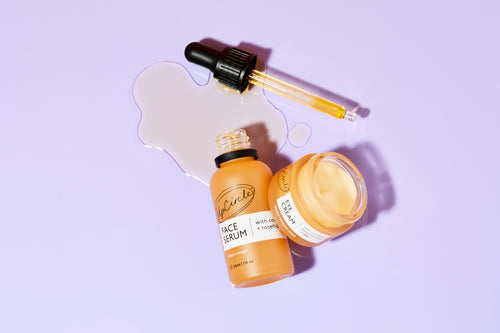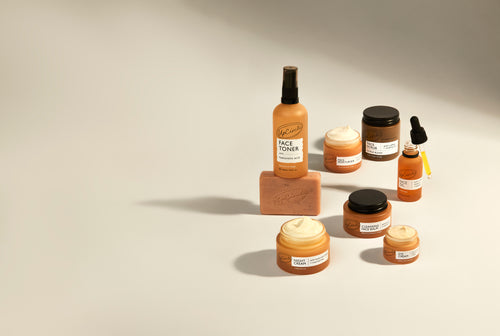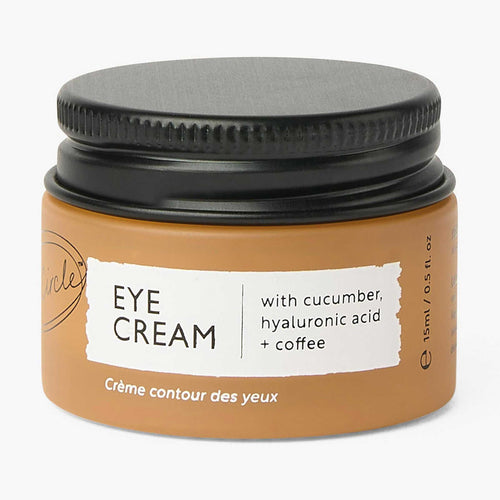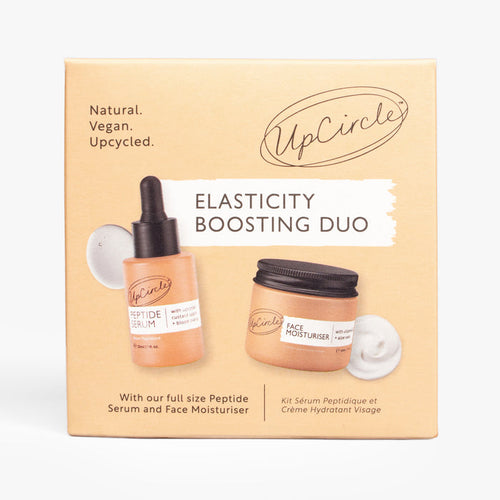The list of holy-grail trending skincare ingredients is seemingly endless, with new entries constantly finding their way into new products.
By now, we all know the benefits of using products containing the likes of hyaluronic acid, rosemary oil and glycerin – but how does succinic acid hold up against these tried and tested ‘hero’ ingredients?
We’ll take a closer look at succinic acid and its skincare benefits, as well as answer some of our most frequently asked questions about the skincare ingredient. Succinic acid blemish treatments are all the rage, but we’ll see if the ingredient brings anything new to the market.
What is succinic acid?
Succinic acid is a naturally occurring compound found in substances such as amber – sometimes known as spirit of amber – as well as living organisms. It can also be produced – however oftentimes the processes used are harmful to the environment.
Commonly used in the food and drink industry as an acidity regulator, succinic acid is also used in the pharmaceutical industry to control acidity or as a counter ion. Some food sources already have succinic acid in them, including the likes of broccoli and rhubarb – and have been hailed for their benefits.
How to use succinic acid for skin
Understandably, for many people, the word ‘acid’ can be immediately off putting – with fears of peeling irritated skin. Thankfully, that’s not what happens when you use succinic acid for skin.
Typically in cosmetics, succinic acid is used as an anti-blemish treatment. There are differences in formula of individual products on the market, but a succinic acid acne treatment can usually be used daily, if not multiple times per day.
A small amount of the acne treatment cream should be dotted onto areas of the skin where you are struggling with acne only, rather than applying as a layer over the entire face.
It’s all well and good knowing how to use succinic acid, but you also need to know why you should want to use it on your skin too.
Succinic acid benefits
The benefits of succinic acid are largely focused on acne treatment, but having great acne-busting qualities isn’t the only thing succinic acid is good for.
1. Helps to control sebum production
While sebum is a substance that the skin creates to keep the skin moisturised and protected, too much sebum can lead to various skin concerns such as acne. Excess sebum can clog up your pores, allowing for bacteria to become trapped.
Succinic acid helps to balance excess sebum production, meaning the pores are less likely to become clogged and acne-causing bacteria trapped.
2. Speeds up cell renewal
For rejuvenated glowing skin, skin cell renewal is key. As skin cells renew, healthy skin cells are revealed underneath. This is a really important part of acne management that can often be overlooked.
3. Effective antimicrobial agent
One of the reasons why succinic acid makes for such a great acne treatment is its antimicrobial properties. This means that succinic acid helps to prevent microorganisms – which may include bacteria, viruses, or fungi – from growing.
4. Helps to soothe the skin
Anti-inflammatory in nature, succinic acid helps to soothe red, irritated skin associated with acne breakouts. As it’s typically used as a topical blemish treatment, succinic acid can not only help to reduce the buildup of acne-causing bacteria, but also soothe the skin suffering from a breakout.
5. Restores the skin’s pH balance
If you remember back to our school science days, pH is a figure which indicates the acidity of a substance. Measured on a scale of zero to 14, a low pH indicates an acidic substance, a pH of 7 is neutral – and the pH of pure water – and a high pH indicates an alkaline substance.
Succinic acid is a relatively low-strength acid and helps to restore the skin’s natural pH balance, as well the skin’s natural microbiome.
6. Is a powerful antioxidant
Free radicals damage the skin by causing a breakdown of healthy atoms. The body does produce some free radicals, but things such as pollution, UVB rays from the sun and smoke can also cause free radicals which are harmful to the skin.
Antioxidants prevent oxidation which releases free radicals. Antioxidant ingredients such as succinic acid help to combat the damage caused by free radicals as they bind to free radicals, eliminating the missing electron pairing which causes them to break up healthy atoms.
Succinic acid FAQs
Can I use retinol with succinic acid?
Yes, you can use succinic acid with retinol if you want to help improve the skin’s tone and texture as well as combat blemishes.
However, we would always recommend using a natural alternative to retinol – such as products containing the likes of rosehip oil, rosemary extract or sea buckthorn oil. Not only is it less harsh on the skin than retinol, it is also better for the environment.
Product pick: Our Cleansing Face Balm with Oat Oil is also formulated using sea buckthorn oil, a natural alternative to retinol.
Can I use succinic acid with niacinamide?
Using succinic acid and niacinamide together should not cause you any problems. However, as both ingredients are effective at helping to treat acne-prone skin, there might not be any need to use both in your skincare routine.
Product pick: Our Night Cream with Hyaluronic and Niacinamide provides excellent hydration and helps to replenish the skin.
Can I use succinic acid and salicylic acid together?
Yes, you can use both succinic acid and salicylic acid in your skincare routine. Salicylic acid is known for its exfoliating properties, so would work well with succinic acid. However, be mindful of over exfoliating your skin.
Product pick: Our Face Toner with Hyaluronic Acid also includes BHA salicylic acid. Spritz some onto the skin after cleansing for a boost.
Does succinic acid help scars?
Succinic acid may be able to help with the appearance of scars due to its ability to speed up skin cell renewal. However, it is better at preventing the acne scars from forming in the first place.
Discover our full range of ethical skincare, made with upcycled ingredients to give them a new lease of life.







